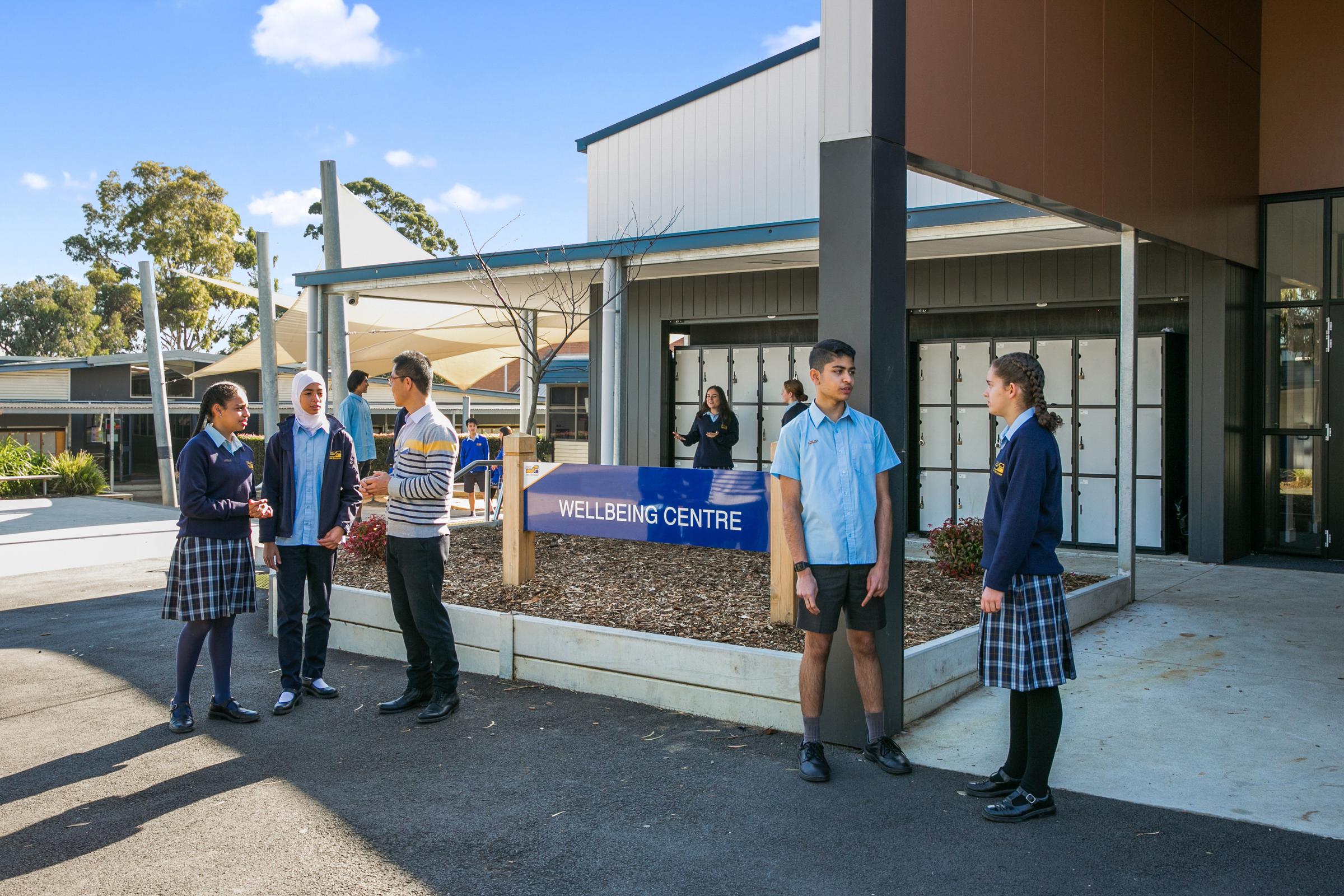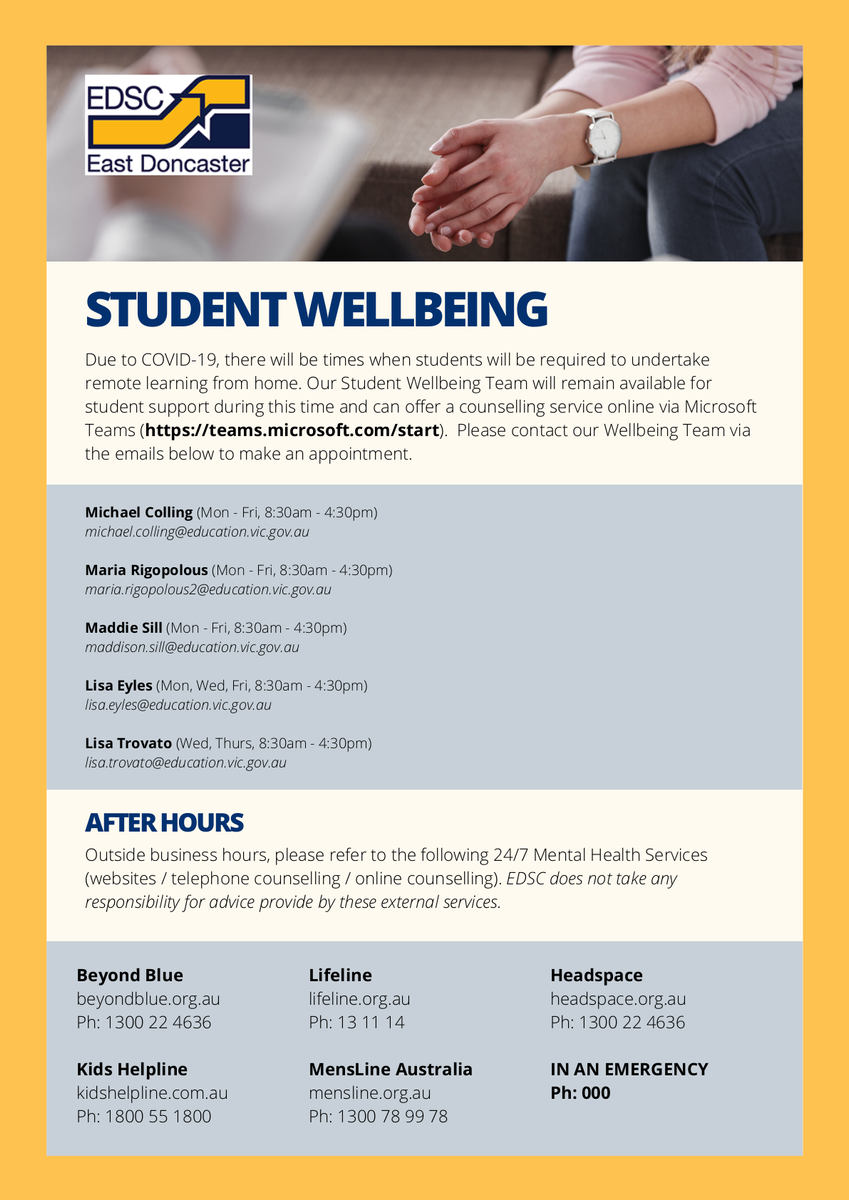
Student Wellbeing News
Life after lockdown
The last couple of years have been a very challenging time for everyone. The most recent lockdown was more difficult for some, while others found it a lot easier to manage. Now that Victoria has started to reopen, there have been some mixed reactions. Some are ready to take on the post-lockdown life, some are taking it slow and others are somewhere in between. All of these reactions are totally normal and it’s important to do things at your own pace.
If you are feeling exhausted at the end of social interactions, this is because your brain is focusing on protecting you. After a long time in lockdown, our brain learned there was a threat in society (COVID) and we start to worry about being out in these spaces. To manage this, try to focus on slowly integrating back into social events and leave when you need to.
After long periods of stress, we can become more sensitive to threats. This is your body’s warning system. However, at the moment it might feel like that alarm is going off constantly. Take a moment to hear the alarm and make your own assessment of the threat. If you can take a moment to assess the threat, you are then able to regain some control over the alarm and choose how to react.
Here are some tips to manage the end of lockdown and living with COVID-19:
- Do things in your own time! If you aren’t ready to go out yet, let your family or friends know that you would like to wait a little longer or plan an activity at home
- Know that you can make your own social decisions. Just because we are allowed to do it does not mean you have to straight away
- Have a chat to a trusted person about your worries, there are many people feeling the same way!
Look after yourself and enjoy the fun things when you are ready!
Maddie Sill
Mental Health Practitioner
Wellbeing Staff
For more information about Wellbeing at the College, please visit the following link ..
Child Safety Standards
East Doncaster Secondary College is committed to the safety and wellbeing of all children and young people. This will be the primary focus of our care and decision making.
East Doncaster Secondary College has zero tolerance for child abuse.
East Doncaster Secondary College is committed to providing a child safe environment where children and young people are safe and feel safe, and their voices are heard about decisions that affect their lives. Particular attention will be paid to the cultural safety of Aboriginal children and children from culturally and/or linguistically diverse backgrounds, as well as the safety of children with a disability.
Every person involved in East Doncaster Secondary College has a responsibility to understand the important and specific role he/she plays individually and collectively to ensure that the wellbeing and safety of all children and young people is at the forefront of all they do and every decision they make.
In our planning, decision making and operations, all personnel at East Doncaster Secondary College will;
- Take a preventative, proactive and participatory approach to child safety;
- Value and empower children to participate in decisions which affect their lives;
- Foster a culture of openness that supports all persons to safely disclose risks of harm to children
- Respect diversity in cultures and child rearing practices while keeping child safety paramount;
- Provide written guidance on appropriate conduct and behaviour towards children;
- Engage only the most suitable people to work with children and have high quality staff and volunteer supervision and professional development;
- Ensure children know who to talk with if they are worried or are feeling unsafe, and that they are comfortable and encouraged to raise such issues;
- Report suspected abuse, neglect or mistreatment promptly to the appropriate authorities;
- Share information appropriately and lawfully with other organisations where the safety and wellbeing of children is at risk; and
- Value the input of and communicate regularly with families and carers.






